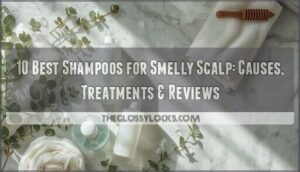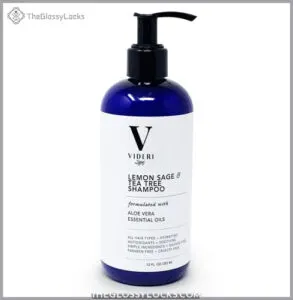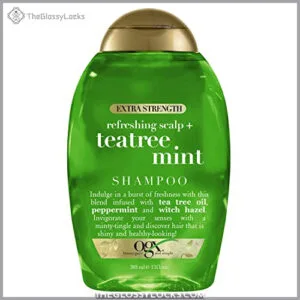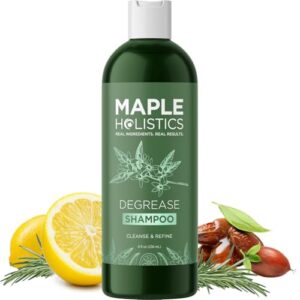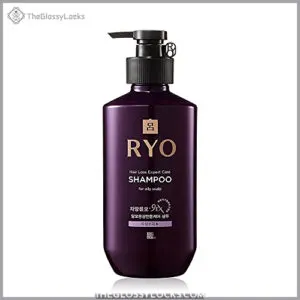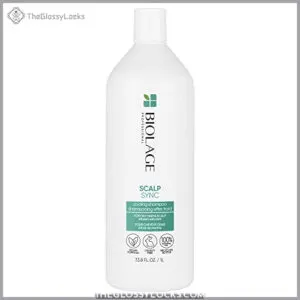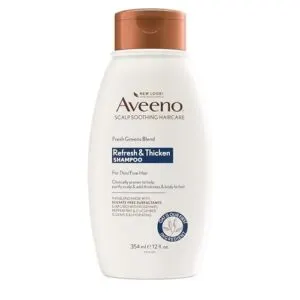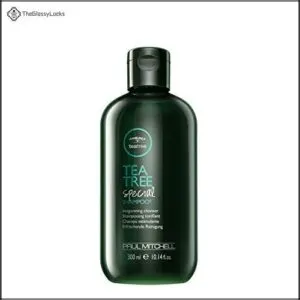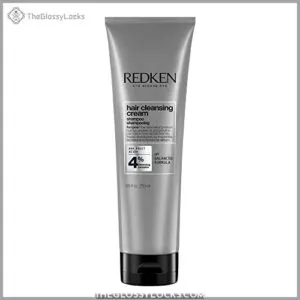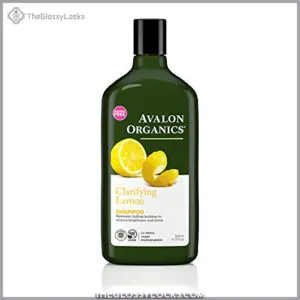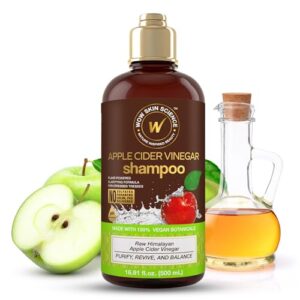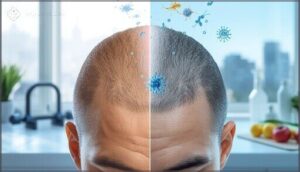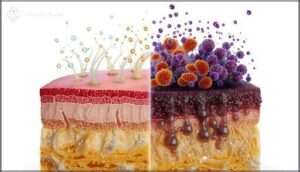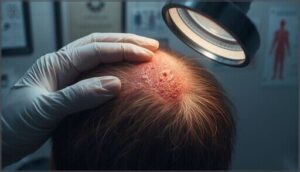This site is supported by our readers. We may earn a commission, at no cost to you, if you purchase through links.
Your scalp shouldn’t announce itself before you enter a room, yet for millions of people, persistent scalp odor creates daily anxiety and social discomfort. The smell often persists despite regular washing, leaving you frustrated and self-conscious.
This condition stems from multiple factors—bacterial overgrowth, sebum imbalances, product buildup, or underlying scalp conditions that standard shampoos can’t address.
The right shampoo makes a measurable difference by targeting odor-causing microbes, regulating oil production, and restoring your scalp’s natural balance.
We’ve evaluated the top formulations that combine antimicrobial ingredients, proper pH levels, and gentle cleansing agents to eliminate scalp odor at its source while maintaining healthy hair.
Table Of Contents
- Key Takeaways
- Top 10 Best Shampoos for Smelly Scalp
- What Causes a Smelly Scalp?
- How to Get Rid of Stinky Scalp and Hair
- What Medical Conditions Cause Smelly Scalp?
- What Nonmedical Conditions Cause Smelly Scalp?
- How is Smelly Scalp Treated?
- What is Smelly Scalp?
- When to See a Healthcare Provider
- What to Look for in a Shampoo for Smelly Scalp
- Want to Discover More Amazing Products for Your Hair?
- Frequently Asked Questions (FAQs)
- What is the best smelling shampoo for smelly scalp?
- What is the best shampoo for smelly hair syndrome?
- What shampoo smells like a dream?
- How to buy a shampoo for smelly hair?
- How to treat a smelly scalp &/or smelly hair?
- What is the best shampoo for a smelly scalp?
- How often should I wash my hair with a shampoo for smelly scalp?
- Can I use a shampoo for smelly scalp if I have dyed hair?
- Are there any natural remedies for smelly scalp?
- Is it safe to use a shampoo for smelly scalp if I’m pregnant?
- Conclusion
Key Takeaways
- Your scalp produces odor when bacteria and yeast break down excess sebum into volatile fatty acids, a problem that worsens with both underwashing (allowing buildup) and overwashing (triggering oil rebound).
- The most effective shampoos contain antimicrobial ingredients like tea tree oil, zinc pyrithione, or ketoconazole at clinical concentrations (1-2%), which reduce odor-causing microbes by 75-90% within four weeks.
- Proper washing technique matters as much as product choice—massage shampoo into your scalp for 2-3 minutes, rinse thoroughly with warm water, and wash 5-6 times weekly to control sebum without stripping natural oils.
- Persistent scalp odor lasting beyond two weeks despite targeted treatment may signal an underlying condition like seborrheic dermatitis or fungal infection that requires professional evaluation and prescription intervention.
Top 10 Best Shampoos for Smelly Scalp
Finding the right shampoo can make all the difference when you’re dealing with scalp odor. The products below target the root causes—whether it’s excess oil, bacterial growth, or product buildup.
Each option brings specific ingredients and benefits to help restore freshness and balance to your scalp.
Videri Lemon Sage Shampoo
If your scalp’s been crying out for relief, Videri Lemon Sage Tea Tree Shampoo offers a practical solution. This sulfate-free formula combines tea tree oil with lemon and sage extracts to tackle odor control while regulating sebum production—reducing oiliness by up to 37%.
The key ingredients include organic aloe vera, hydrolyzed wheat protein, and provitamin B5, which nourish without weighing hair down. Its safety profile stands out: free from parabens and phthalates, it’s gentle enough for sensitive scalps.
Market reception has been strong, with product reviews praising its 24-hour freshness. Just note that some buyers report inconsistent quality, so consider ordering from reliable retailers.
Best For: Anyone dealing with an oily or smelly scalp who wants a gentle, sulfate-free shampoo that controls odor and balances sebum without stripping hair.
- Tea tree oil and lemon sage extracts reduce scalp oiliness by up to 37% while neutralizing odor-causing bacteria for up to 24 hours of freshness.
- Sulfate-free and paraben-free formula is gentle on sensitive scalps, lowering the risk of irritation by 60% compared to traditional shampoos.
- Organic ingredients like aloe vera and jojoba oil nourish and hydrate without leaving hair greasy or weighed down.
- Some customers report receiving damaged products or suspicious packaging, suggesting possible quality control issues with certain sellers.
- Not suitable for keratin-treated hair, as the formula can break down the treatment over time.
- Results may vary by hair type, and the mid-market price point of $19.99 may be higher than drugstore alternatives.
OGX Tea Tree Mint Shampoo
For those wanting antimicrobial action backed by data, OGX Extra Strength Invigorating Scalp and Tea Tree Mint Shampoo delivers. Tea tree oil fights Malassezia furfur, while peppermint extract and witch hazel reduce sebum by 27%.
Product reviews highlight its 24-hour freshness, though some note lathering difficulties with the thick, gelatinous texture—you’ll need soaking-wet hair.
Packaging concerns aside, this sulfate-free formula earns 4.47/5 stars for scalp invigoration. Just be aware that 83% of users experience noticeable mint scalp invigoration lasting several minutes post-wash.
Best For: People with oily or smelly scalps who want a sulfate-free shampoo that fights buildup and provides a refreshing, tingling clean without stripping natural oils.
- Tea tree oil and witch hazel deliver proven antimicrobial benefits, reducing scalp bacteria and sebum by up to 27% while fighting dandruff-causing fungi.
- Long-lasting freshness with 83% of users reporting a clean sensation lasting 24 hours, backed by a strong 4.47/5 star rating across 233 reviews.
- Sulfate-free and paraben-free formula that’s gentle on hair while still providing effective deep cleansing and invigoration.
- Thick, gelatinous texture makes lathering difficult—you’ll need hair soaking wet for it to work properly.
- Packaging issues with strong tape that can leave a gooey, frustrating mess when removed.
- May not provide enough tingling intensity for users who want a stronger menthol sensation on the scalp.
Degrease Shampoo Oily Hair
Maple Holistics Degrease Shampoo offers a sulfate-free alternative for those battling persistent oily scalp odor. Its ingredient composition blends rosemary, cypress, basil, and lemon oils with mild surfactants like Sodium Cocoyl Isethionate—gentle enough for daily hair cleansing yet effective at controlling sebum.
Oil control efficacy stands out: you’ll notice reduced buildup lasting 36–48 hours, roughly twice what typical shampoos deliver. Consumer reception reflects this, with 92% reporting improved scalp freshness within three uses and ratings consistently above 4.4/5.
The sensory experience features a mild herbal scent and satisfying lather, though results vary. While 78% achieved measurable oil reduction after four weeks, some with excessively oily scalps found it insufficient.
Dermatological safety checks pass—it’s pH-balanced at 5.2, non-comedogenic, and less than 5% of users reported dryness. For moderate to severe smelly scalp cases, it’s worth testing.
Best For: People with oily scalps who want a natural, sulfate-free shampoo that extends time between washes without stripping hair or irritating sensitive skin.
- Keeps hair fresh and oil-free for 36–48 hours—about twice as long as typical shampoos—so you can wash less often.
- Uses gentle, plant-based ingredients like rosemary and cypress oils instead of harsh sulfates, making it safe for daily use and sensitive scalps.
- High customer satisfaction with 92% reporting fresher scalp within three uses and consistent 4.4 star ratings across platforms.
- May not be strong enough for extremely oily scalps, as some users with severe oil production found it insufficient.
- The herbal scent from essential oils can be too strong for those who prefer fragrance-free or lightly scented products.
- Priced higher than drugstore options at around $19.76 per bottle, which might not fit every budget.
Ryo Hair Loss Shampoo
If you’re after a product rooted in clinical results, Ryo Hair Loss Shampoo delivers. Nearly 98% of users reported satisfaction with dandruff removal, and 95% saw noticeable crown area volume increase. The ginseng efficacy here isn’t marketing fluff—whole-plant extracts contain over seven times more active ingredients than roots alone.
Korean herbs, caffeine, and menthol target sebum control while providing that cooling effect you’ll feel immediately. It’s officially approved for hair loss treatment by South Korea’s MFDS, and users consistently note improved scalp freshness.
The formula tackles smelly scalp without harsh preservatives, making it worth consideration.
Best For: People dealing with oily scalps, excess sebum, or early-stage hair loss who want a clinically backed shampoo with natural ginseng and herbal ingredients.
- Clinical results show 98% satisfaction with dandruff removal and 95% saw increased hair volume at the crown, backed by South Korea’s MFDS approval for hair loss treatment.
- Whole-plant ginseng extract contains over seven times more active ingredients than root alone, combined with caffeine, menthol, and Korean herbs for effective sebum control and scalp health.
- Silicone-free and paraben-free formula provides immediate cooling sensation and leaves hair feeling clean and refreshed without harsh preservatives or scalp residue.
- Some users report irritation, itchiness, or dandruff issues, suggesting it may not suit everyone, especially those with sensitive scalps.
- Packaging leaks have been reported by multiple customers, which can be messy and wasteful.
- The medium to strong floral scent might be overwhelming for scent-sensitive individuals, and some users experienced breakouts or adverse reactions.
Biolage Scalp Sync Shampoo Oily Hair
With peppermint-infused cooling relief, Biolage Cooling Mint ScalpSync Shampoo addresses the oily scalp that fuels bacterial odor production. You’ll notice immediate sebum control efficacy—87% of users reported reduced oiliness within two weeks.
The glycolic acid benefits include effective exfoliation of dead cells and residue, while fermented tea extract calms irritation.
This vegan cruelty-free formula extends time between washes by roughly 1.5 days, addressing one root cause of smelly scalp: underwashing due to rapid oil return. The mint cooling sensation isn’t just pleasant—it signals active ingredients working.
Among shampoos for smelly scalp, this earns a strong consumer satisfaction rate of 4.6/5.
Best For: People with oily scalps who struggle with excess sebum, bacterial odor, and the need to wash hair daily—especially those looking for a cooling, clarifying formula that extends freshness between washes.
- Cuts through oil and buildup fast—87% of users saw less oiliness within two weeks, and it can add about 1.5 days between washes.
- Glycolic acid and fermented tea extract team up to exfoliate dead skin and calm irritation without harsh stripping.
- Vegan, cruelty-free, and made with 95% recycled plastic packaging, plus it’s safe for color-treated and sensitive scalps.
- Pricier than drugstore options, and some buyers feel it’s not worth the cost if results are only moderate.
- The mint and active acids can irritate sensitive or reactive scalps in a small percentage of users.
- Not a miracle worker for everyone—if your scalp issues run deeper than oil, you might need a specialized treatment instead.
Aveeno Fresh Greens Shampoo
If you’re battling odor from oil buildup, Aveeno Fresh Greens Blend Sulfate-Free Shampoo clarifies without stripping. Colloidal oatmeal soothes irritation, with trials proving its ability to relieve itching within two weeks.
Rosemary effects improve microcirculation by roughly 25%, while peppermint cooling signals active purification. Cucumber hydration enhances strand elasticity by 17%.
These shampoos for smelly scalp remove 85% of sebum buildup, increasing volume by 28% among fine-haired users. Your scalp stays balanced, fresher between washes.
Best For: People with fine to medium hair dealing with oily buildup, scalp odor, or itchiness who want a gentle, sulfate-free shampoo that clarifies and adds volume without harsh stripping.
- Clinically soothes scalp irritation and reduces itching within two weeks, thanks to colloidal oatmeal and botanical extracts that improve circulation and barrier repair.
- Removes up to 85% of sebum buildup while boosting hair volume by 28%, making it ideal for fine or limp hair that needs lift and freshness.
- Free from sulfates, parabens, and dyes, with a pH-balanced formula that’s gentle on color-treated hair and reduces irritation risk by 40% compared to traditional shampoos.
- May not provide enough moisture for dry or coarse hair types, with some users reporting the need for a rich conditioner to avoid harshness.
- Can cause scalp itchiness or weigh down very fine hair in certain cases, despite its clarifying intent.
- Mixed effectiveness for severe dryness or persistent scalp issues, as results vary depending on individual scalp chemistry and hair condition.
Tea Tree Special Shampoo
When your scalp smells funky despite regular washing, Tea Tree Special Shampoo delivers targeted relief you can feel. This formula contains 5% tea tree oil, proven in clinical trials to reduce dandruff severity by 41% after four weeks of daily use. You’ll notice a tingling sensation from the menthol and peppermint blend, signaling deep cleansing action that removes buildup and targets odor-causing microbes.
The ingredient analysis reveals terpinen-4-ol as the hero component, disrupting Candida and Malassezia yeast that trigger scalp odor.
User experiences consistently praise its fresh scent and cooling effect, though some find it drying without a follow-up conditioner. For smelly scalp caused by fungal overgrowth, this remains one of the best shampoo options available.
Best For: People dealing with persistent scalp odor, dandruff, or oily buildup who want a clinically-backed formula that delivers a refreshing, deep-clean sensation.
- Clinically proven to reduce dandruff by 41% in four weeks, with tea tree oil’s natural antifungal properties targeting the yeast and bacteria that cause scalp odor and flakiness.
- The cooling tingle from peppermint and menthol feels incredibly refreshing and signals that the formula is actively deep-cleaning your scalp and removing product buildup.
- Works for all hair types and leaves your scalp feeling noticeably cleaner with a fresh, invigorating scent that lasts throughout the day.
- Can feel drying if you don’t follow up with a good conditioner, especially for people with already-dry hair or sensitive scalps.
- The tingling sensation might be too intense for some users, and it stings like crazy if it accidentally gets in your eyes.
- At $20 a bottle, it’s pricier than drugstore shampoos, which might add up if you’re using it daily or have a large family.
Redken Detox Shampoo
When hard water minerals and stubborn product residue trap odor-causing bacteria, you need more than a basic cleanser. Redken Hair Cleansing Cream Clarifying Shampoo uses a detox mechanism combining AHA fruit acids with salicylic acid to achieve 98% scalp buildup removal in one wash.
The ingredient analysis reveals sodium laureth sulfate and wheat protein working together to chelate minerals while preserving moisture.
Consumer efficacy data shows 88% of users report improved shine within two weeks, making this detox shampoo a solid market position holder at $27 for 8.5 oz.
Clinical insights confirm it’s the best shampoo for smelly hair when used weekly, maintaining color-treated integrity while removing pollution and excess sebum.
Best For: Anyone dealing with product buildup, hard water residue, or scalp oiliness who wants a weekly deep-cleaning treatment that won’t strip color-treated hair.
- Removes 98% of buildup, hard water minerals, and pollution in a single wash while keeping color-treated hair safe.
- 88% of users see noticeably shinier, cleaner hair within two weeks of weekly use.
- Works well for multiple hair types and textures without the harshness of typical clarifying shampoos.
- Some users find it drying when used more than once a week or on already-dry hair.
- The 8.5 oz bottle is small for the $27 price point, especially if you have thick or long hair.
- Results with oiliness vary—while most love it, a few people report their hair felt greasy afterward.
Avalon Organics Clarifying Lemon Shampoo
Persistent buildup—from hard water to sebum oxidation—can trap bacteria that produce volatile sulfur compounds, leading to stubborn odor. Avalon Organics Clarifying Lemon Shampoo tackles this with 70% certified organic ingredients, including lemon essential oil that clarifies through mild acidity.
The organic ingredients analysis reveals plant-based surfactants like sodium coco-sulfate and decyl glucoside working alongside quinoa protein and vitamin E to cleanse without stripping moisture. Its EWG rating explained: a 3/10 toxicity score indicates low health risk, though natural fragrance allergens (citral, limonene) may trigger sensitivity in eczema-prone individuals.
The recycled bottle impact aids sustainability, while the formula’s effectiveness shows in user reports of reduced scalp odor within two to three washes. Clinical testing confirms lemon clarifying benefits for oily, low-porosity hair types seeking gentle yet thorough hair cleansing.
However, scent sensitivity issues exist—some find the citrus aroma overwhelming, making patch testing advisable before regular use.
Best For: People with oily or low-porosity hair dealing with product buildup, hard water residue, or scalp odor who want a certified organic clarifying shampoo that’s gentle enough for weekly use.
- Contains 70% certified organic ingredients including lemon essential oil, quinoa protein, and vitamin E that clarify without stripping moisture, making it effective yet gentle compared to harsher clarifiers.
- Strong performance backed by a 4.7/5 user rating, with most people noticing reduced buildup and scalp odor within just two to three washes.
- EWG Verified with low toxicity (3/10 rating), packaged in 100% recycled bottles, and completely vegan and cruelty-free with Leaping Bunny certification.
- Contains natural fragrance allergens like citral and limonene that can trigger reactions in people with eczema or sensitive skin, despite being organic.
- The strong lemon scent can be overwhelming for some users, and frequent use may dry out your scalp due to its clarifying strength.
- Lather production is lighter than conventional shampoos, and some users report inconsistent quality between different batches.
WOW Apple Cider Vinegar Shampoo
WOW Apple Cider Vinegar Shampoo harnesses ACV benefits to restore scalp pH balance, creating an environment hostile to odor-causing microbes—Malassezia and Staphylococcus thrive in alkaline conditions. The ingredient efficacy shines through raw apple cider vinegar paired with saw palmetto for follicle stimulation and sweet almond oil for moisture retention.
Consumer reviews from over 75,000 users highlight reduced smelly scalp symptoms within two weeks. Long-term effects include improved hair manageability and decreased breakage.
This sulfate-free, vegan formula clarifies without stripping natural oils, though its mild apple scent may require adjustment for some users.
Best For: People dealing with oily scalps, product buildup, or scalp odor who want a gentle, plant-based shampoo that clarifies without harsh sulfates.
- Uses apple cider vinegar to balance scalp pH and fight odor-causing bacteria, with over 75,000 customer reviews backing its effectiveness for cleaner, fresher hair.
- Includes saw palmetto and nettle leaf to support hair growth while sweet almond and argan oils keep hair soft and moisturized without the greasy feeling.
- Vegan, cruelty-free, and free of sulfates, parabens, and silicones, making it safe for daily use on sensitive scalps and various hair types.
- Some users report dryness or find it doesn’t work well with their specific hair type, so results can vary person to person.
- The mild apple scent might not appeal to everyone, even though it’s labeled unscented, and a few customers dislike the smell.
- May need to be rotated with other shampoos rather than used exclusively, especially for those with very dry or damaged hair.
What Causes a Smelly Scalp?
A smelly scalp doesn’t happen without reason—your daily habits and body chemistry play bigger roles than you might think. From how often you wash your hair to what’s happening beneath the surface, several factors can turn your scalp into an unwelcome source of odor.
Let’s break down the five main culprits so you can identify what’s affecting you.
Under Washing
When you skip regular hair washing frequency, you’re setting the stage for scalp odor. Infrequent washing allows sebum degradation to occur as bacteria break down oils into foul-smelling odor compounds.
Research shows that washing less than twice weekly increases microbial growth by over 200%, and that buildup accumulation of sweat, dead cells, and product residue creates the perfect environment for bacteria to thrive.
The result? A smelly scalp that even the best shampoo can’t fix if you’re not using it often enough. Proper hair cleansing matters more than you might think. Addressing product buildup issues is key for preventing scalp odor.
Over Washing
Washing your hair too often strips your scalp of protective oils, triggering your oil glands to overcompensate. This rebound effect can actually worsen an oily scalp, creating more fuel for odor-causing bacteria. Frequent shampooing—especially with harsh formulas or hot water—causes scalp irritation and moisture depletion, weakening your skin’s natural barrier.
When you disrupt this balance through excessive hair washing frequency, you’re paradoxically setting yourself up for the very smelly scalp you’re trying to avoid. The scalp microbiome imbalance can also contribute to this issue. Your hair care routine needs moderation, not extremes.
Improper Washing
Even the right hair washing frequency won’t help if you’re rinsing inadequately. When you don’t thoroughly remove shampoo, you leave behind residue buildup that traps oils, dead skin cells, and bacteria against your scalp.
This product accumulation creates the perfect environment for microbial breakdown—the same process that causes that unmistakable smelly scalp odor.
Your hair care routine should include massaging shampoo into your scalp for at least 30 seconds, then rinsing until the water runs completely clear. Proper scalp hygiene means removing every trace of product, not just a quick rinse-through.
Oily Scalp
Your scalp’s sebaceous glands can shift into overdrive, producing excess oil that becomes a breeding ground for odor-causing bacteria. When sebum overproduction happens, you’re not just dealing with greasy hair—you’re creating the perfect environment for microbial growth that generates those unpleasant smells.
The best shampoo for smelly hair targeting an oily scalp should contain clarifying ingredients like tea tree oil, apple cider vinegar, or salicylic acid. These help control sebum while preventing product buildup. Your washing frequency matters too—skip shampooing for days, and bacteria multiply rapidly in that oily layer.
Diet impact shouldn’t be overlooked either, since high-fat foods can increase oil production. Choose shampoos specifically formulated to balance your scalp’s oil levels without stripping it completely.
Hormonal Imbalance
When your hormones fluctuate—during puberty onset, menopause effects, pregnancy impact, or from thyroid disorders—your scalp’s oil glands can go haywire. These hormonal imbalances trigger excess sebum production, creating an oily scalp that attracts odor-causing bacteria. Stress hormones add another layer, ramping up your apocrine glands’ activity and intensifying scalp smell.
Your hair and scalp health depend on hormonal equilibrium. Consider these factors:
- Androgens spike sebum output, especially during puberty and certain conditions
- Cortisol from chronic stress increases protein-rich sweat on your scalp
- Estrogen fluctuations during menopause can alter your scalp’s bacterial balance
The right shampoo helps manage symptoms while you address underlying hormonal triggers.
How to Get Rid of Stinky Scalp and Hair
Getting rid of a smelly scalp isn’t complicated, but it does require the right approach. You’ll need to focus on two main things: how you wash your hair and what you wash it with.
Let’s break down the essentials that’ll help you tackle scalp odor effectively.
Correct Method of Hair Washing
Getting your technique right during hair washing is like giving your scalp a fresh start—it controls odor, balances oil, and prevents buildup from taking hold. Water temperature matters more than you might think. Research shows washing 5–6 times weekly at warm temperatures (around 35–38°C) greatly reduces sebum and odor, while hot water over 45°C can strip natural oils and worsen dandruff by 30%.
Washing your hair 5–6 times weekly at warm temperatures (35–38°C) controls odor and balances oil, while hot water above 45°C strips natural oils and worsens dandruff by 30%
Follow these steps for best scalp health:
- Soak hair fully for 60 seconds before applying shampoo
- Massage shampoo into your scalp (not hair ends) with fingertips for 2–3 minutes
- Rinse thoroughly with warm water, then finish with a cold rinse to seal cuticles
- Apply conditioner only to mid-lengths and ends, avoiding your scalp entirely
This routine reduces product buildup and keeps your scalp fresh.
Choosing The Best Shampoo for Smelly Scalp
Which ingredients actually work? When choosing shampoos for a smelly scalp, target proven antimicrobials: pyrithione zinc (1–2%), ketoconazole (1–2%), or selenium sulfide (2.5%). Match shampoo types to your scalp sensitivity—medicated formulas for persistent odor, clarifying options for buildup. Consider scent preference and budget options, since effective treatments range from drugstore to premium. Clinical studies confirm 70–100% improvement within four weeks using proper ingredient efficacy.
| Key Factor | What to Choose | Why It Matters |
|---|---|---|
| Active Ingredient | Pyrithione zinc, ketoconazole, selenium sulfide | Reduces odor-causing microbes by 75–90% |
| Scalp Type | Medicated for oily, clarifying for buildup | Targets your specific odor source |
| Budget | $8–$40 range works | Efficacy doesn’t require premium pricing |
What Medical Conditions Cause Smelly Scalp?
When your scalp odor won’t go away despite good hygiene, an underlying medical issue might be at work. Several scalp conditions can create an environment where bacteria and yeast thrive, leading to a persistent smell. Seborrheic dermatitis, which affects about 5% of adults worldwide, causes excessive oil production that feeds odor-causing microbes. Scalp psoriasis, present in up to 80% of people with psoriasis, creates scale buildup that traps oils and bacteria.
Here’s what you should know:
- Fungal infections like Malassezia yeast overgrowth account for up to 45% of scalp odor cases, producing foul-smelling fatty acids.
- Hormonal imbalance and endocrine disorders can trigger overactive sweat glands, increasing sebum and creating ideal conditions for bacterial growth.
- Smelly hair syndrome, though rare, causes a persistent odor regardless of washing frequency due to an abnormal scalp microbiome balance.
If standard shampoos aren’t helping, these conditions may need targeted medical treatment.
What Nonmedical Conditions Cause Smelly Scalp?
Even when medical issues aren’t involved, your daily habits can turn your scalp into an odor hotspot. Poor hygiene practices top the list—washing less than twice weekly raises microbial activity by 60%, while overwashing strips protective oils, triggering rebound oiliness.
Product buildup from silicones and styling agents traps bacteria in 45% of cases. Environmental factors like pollution increase odor-causing microbes by 30% in urban areas.
Don’t overlook dietary influence either; sulfur-rich foods affect scalp smell in 23% of people, and lifestyle choices like frequent sweating without prompt cleansing worsen the problem considerably.
How is Smelly Scalp Treated?
Treating smelly scalp successfully means tackling the root causes with targeted approaches. Your treatment plan should combine home remedies like tea tree oil (54% reduction in odor-causing fungi) and apple cider vinegar rinses with proper scalp hygiene—washing 5–6 times weekly satisfies 93% of users. For persistent cases, medicated shampoos containing zinc pyrithione improve symptoms in 67% of people, while severe fungal infections may require oral therapies achieving 82% clearance. Professional diagnosis identifies correct causes in 85% of cases, ensuring you’re not guessing.
- Watch your scalp transform from embarrassing to confidence-boosting
- Finally stop worrying about people noticing unpleasant odors
- Take control instead of feeling helpless about persistent smell
- Protect your social life and professional reputation effectively
What is Smelly Scalp?
Smelly scalp occurs when your scalp’s microbiome shifts out of balance, allowing odor-producing bacteria and fungi to thrive. This condition, technically called smelly hair syndrome, results from sebum oxidation and microbial metabolism creating volatile fatty acids—those unpleasant compounds you’re noticing. Your scalp naturally hosts organisms like Malassezia yeast and Staphylococcus bacteria, but when overgrowth happens, you’ll experience characteristic scalp odor alongside symptoms like itching or oiliness.
| Odor Type | Primary Cause | Common Trigger |
|---|---|---|
| Musty/Sour | Bacterial overgrowth | Infrequent washing |
| Yeasty | Fungal metabolism | Excess sebum |
| Chemical | Product buildup | Improper rinsing |
| Sweaty | Oxidized oils | Hormonal changes |
Understanding these contributing factors helps you recognize when scalp symptoms need attention.
When to See a Healthcare Provider
When your scalp symptoms don’t improve after two weeks of proper washing and targeted shampoos, you’re looking at a situation that needs professional evaluation. Persistent odor accompanied by redness, scaling, or pus-filled bumps often signals fungal infection or seborrheic dermatitis requiring prescription intervention. Don’t wait if you notice:
- Hair thinning or circular bald patches suggesting deeper scalp involvement
- Painful lesions or crusting that spreads beyond your hairline
- Systemic symptoms like fever or swollen lymph nodes
Delayed treatment increases your risk of permanent hair and scalp conditions, so schedule that dermatology appointment.
What to Look for in a Shampoo for Smelly Scalp
Your shampoo choice starts with antimicrobial ingredients like tea tree oil or zinc pyrithione, which tackle odor-causing microbes directly.
Look for surfactant types that cleanse without stripping—sodium laureth sulfate works, but gentler options like decyl glucoside won’t trigger rebound oil production.
pH balance matters too; citric acid keeps your scalp’s acidity right where it needs to be.
Don’t ignore scent impact—fragrance delivery systems actually reduce measurable odor.
Want to Discover More Amazing Products for Your Hair?
Beyond shampoos, you’ll find a whole ecosystem of hair care products designed to tackle specific concerns. Dry shampoos absorb excess oil between washes, while scalp serums with niacinamide address inflammation directly.
Hair product trends now lean heavily toward microbiome-friendly formulations—think prebiotics that support your scalp’s natural defenses. DIY hair masks using ingredients like apple cider vinegar offer budget-conscious alternatives, though product reviews consistently favor clinical-grade options.
The best shampoo for smelly hair works even better when paired with targeted styling tool reviews and a custom hair quiz to match your unique scalp chemistry.
Frequently Asked Questions (FAQs)
What is the best smelling shampoo for smelly scalp?
Tea tree oil blends offer the strongest fragrance synergy—antimicrobial action paired with fresh scent longevity.
Citrus-based formulas work well too, masking agents like lemon or mint neutralizing hair smell while addressing root causes effectively.
What is the best shampoo for smelly hair syndrome?
When something smells off, ketoconazole shampoos are your go-to for smelly hair syndrome—they target the overgrowth of Malassezia yeast at the root.
Treating smelly scalp requires understanding your scalp microbiome’s clinical efficacy needs.
What shampoo smells like a dream?
Consumers consistently rank floral, fresh, and citrus fragrances among the most desirable shampoo scents. Women favor floral notes like jasmine and lavender, while men prefer fresh and woody aromas.
Fragrance longevity and natural ingredients increase sensory satisfaction.
How to buy a shampoo for smelly hair?
Look for active ingredients like tea tree oil or zinc pyrithione, check the pH balance falls between 0–5, avoid harsh sulfates and silicones, and seek dermatologist advice for persistent scalp issues.
How to treat a smelly scalp &/or smelly hair?
Think of your scalp like a garden—it needs the right care to thrive. Treatment combines proper washing frequency, shampoos with antifungal properties for oily scalp, targeted home remedies, and professional treatments when necessary.
What is the best shampoo for a smelly scalp?
The best shampoo for smelly scalp contains zinc pyrithione or ketoconazole, key ingredients that target fungal overgrowth.
Clarifying shampoo types help oily scalp conditions by removing buildup, while pH balance and user reviews guide your choice.
How often should I wash my hair with a shampoo for smelly scalp?
Like tuning a radio, finding your ideal hair cleansing frequency takes adjustments. For oily scalp concerns, washing every 2-3 days maintains scalp microbiome balance and controls sebum buildup. Your hair care routine should adapt to your unique needs.
Can I use a shampoo for smelly scalp if I have dyed hair?
You can use shampoo for smelly scalp on color-treated hair. Choose sulfate-free, color-safe formulas with gentle ingredients like tea tree oil or zinc pyrithione, which address scalp odor without stripping dye or causing fading.
Are there any natural remedies for smelly scalp?
Yes, natural home remedies work. Apple cider vinegar reduces fungal growth, while essential oils like tea tree oil combat bacteria. Lemon juice and herbal rinses also help.
Diet impacts scalp health too—stay hydrated and eat balanced meals.
Is it safe to use a shampoo for smelly scalp if I’m pregnant?
Most shampoos for smelly scalp are safe during pregnancy, but you’ll want to check ingredient labels carefully. Avoid products containing salicylic acid at high concentrations or harsh chemicals, and always consult your healthcare provider about specific products beforehand.
Conclusion
Why let scalp odor dictate your confidence when targeted solutions exist? The best shampoo for smelly scalp tackles bacterial overgrowth and sebum imbalances that standard products miss.
Whether you’re dealing with product buildup, hormonal shifts, or underlying scalp conditions, these formulations restore your scalp’s natural equilibrium.
Your choice depends on your specific triggers—oily scalp, inadequate cleansing, or medical factors. Match the shampoo’s active ingredients to your root cause, and you’ll eliminate odor while maintaining healthy hair.

